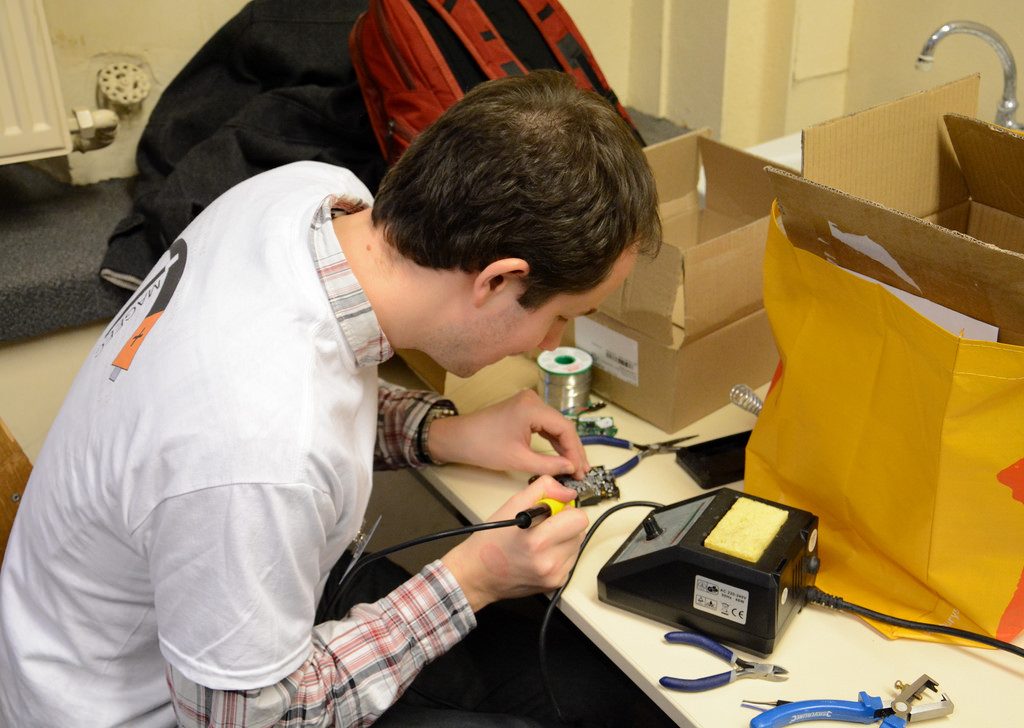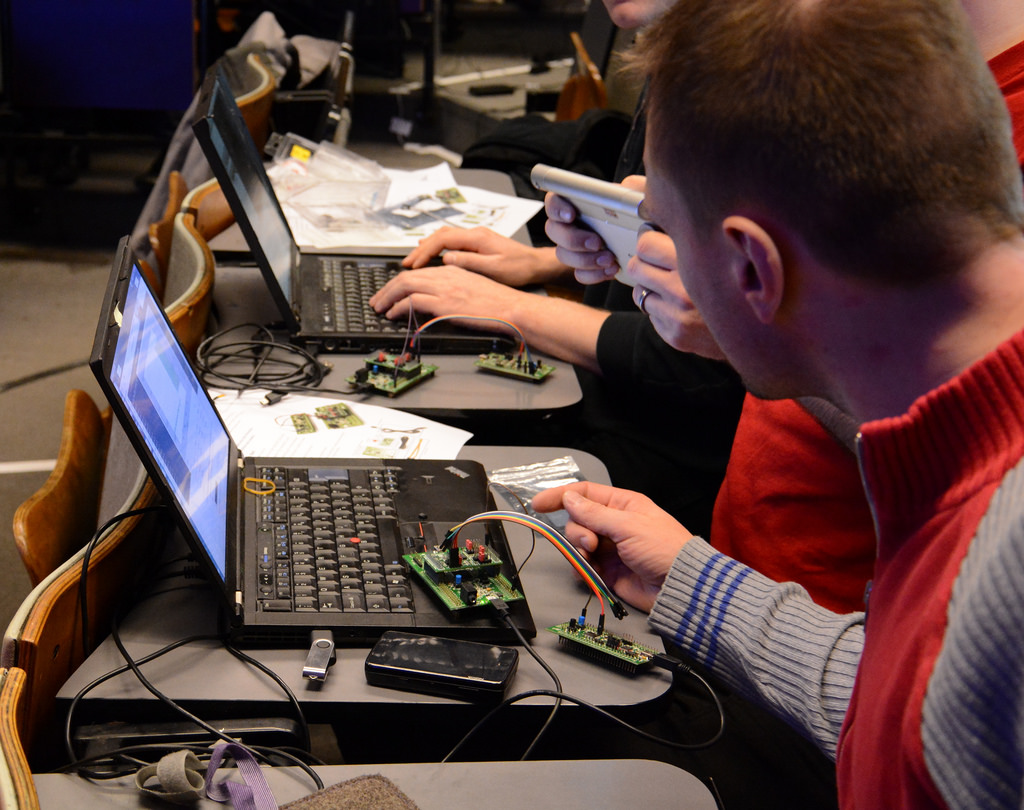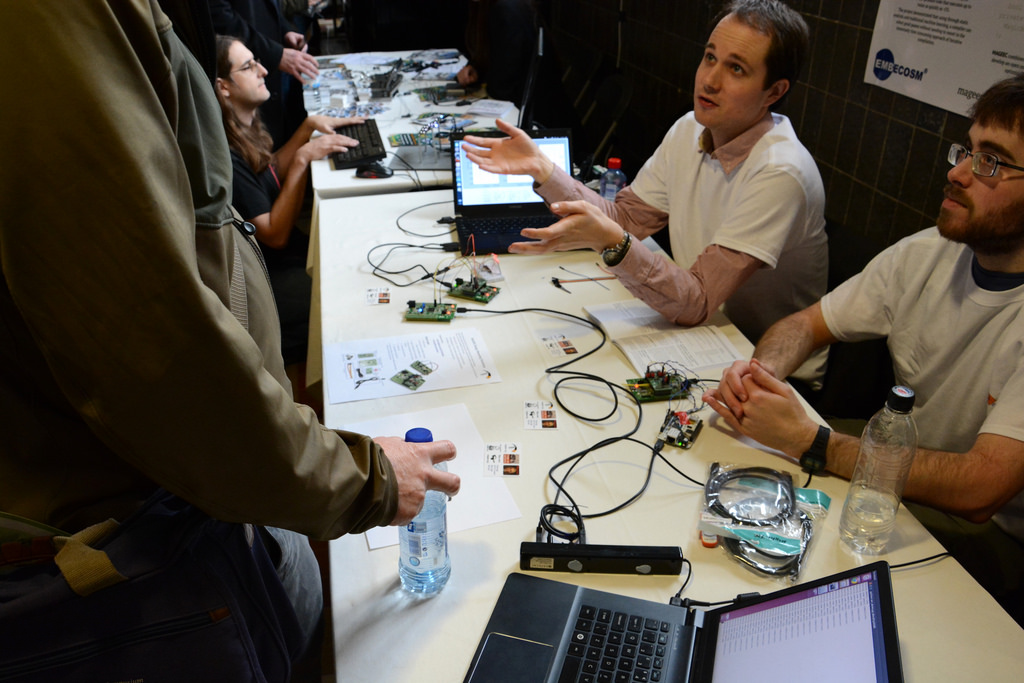In my previous post I talked about the main track presentation “Who Ate My Battery” given at FOSDEM 2014 with my colleague Kerstin Eder of Bristol University. That was on the first day of FOSDEM, and part of our objective was to attract participants to our hands-on workshop the following day. We wanted people not only to hear about how easy it is to measure energy efficiency of software, but also to try it for themselves.
The workshop was the centerpiece of a full-day dev room at FOSDEM covering all aspects of energy efficient computing. It included background talk on the underlying theory from Dr Simon Hollis of Bristol University, an introduction to the spEEDO project by Dr David Greaves of Cambridge University, Emilio Monti of ARM talking about the energy efficiency features of mbed, a description of the energy consumption analysis in the EU ENTRA project by Kerstin Eder, Kyriakos Georgiou and Neville Grech of Bristol University and details of the EACOF framework to instrument software for energy efficiency by Hayden Field and James Pedlingham, also of Bristol University. The last talk is particularly notable, because Hayden and James are both undergraduates, yet their project work has received international recognition—as well as FOSDEM their paper has been accepted at an academic conference in Korea later this year.
It should be no surprise that Bristol University features so heavily in the list of speakers. Their Department of Computer Science hosts one of the leading groups working on energy efficiency and they are host to the annual EACO workshops, bringing together researchers from across Europe.
At the center of the day was the three hour energy efficiency workshop. Thanks to the generosity of the UK Technology Strategy Board (the government’s innovation agency), we had 50 complete energy measurement kits to give away. The takes the form of a daughter board for a standard ST Micro ARM Cortex M4 board. It is a completely open hardware design by Dr Simon Hollis of Bristol University. Despite its low cost (the component cost is less than $10 and even fully manufactured in small volumes total cost is less than $50) it provides three ports, each capable of up to 2 million samples per second, measuring voltage and current with an accuracy of 1%. The board is configurable through jumpers, making it suitable for devices with supplies up to 6V and peak currents of between 10mA and 1A. All the design files are available on GitHub.
We were able to offer participants a range of targets to experiment with including Shrimp Arduinos (sponsored by Embecosm), ARM Cortex M3 boards (sponsored by Bristol University) and AVR xmega eXplained boards (sponsored by Atmel). More exciting where participants who brought their own designs along to measure, including the mbed board from Emilio Monti. At the end of the workshop all 50 kits had been taken, and we have since had active engagement with the MAGEEC community, including one participant who ported all the tools to Windows.
We were not surprised at the popularity of the workshop. We ran an information table throughout the conference and it was busy all the time. If you missed the workshop, then you can find all the materials on the MAGEEC wiki. We have just a few more energy measurement kits we can give away—all we ask in exchange is that you make good use of them and share your experience with the community. Just send me an email explaining how you plan to use the energy measurement board.



